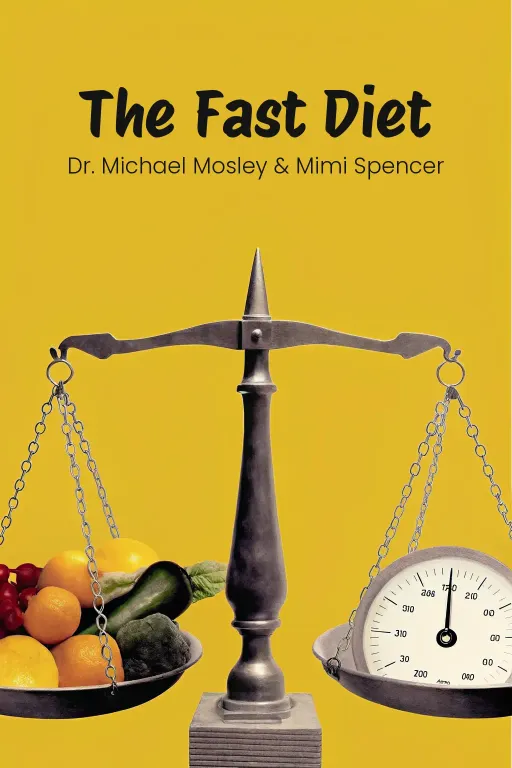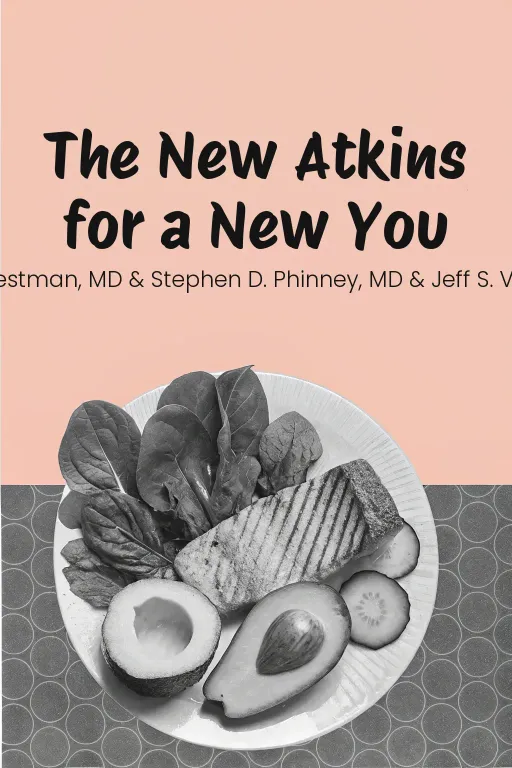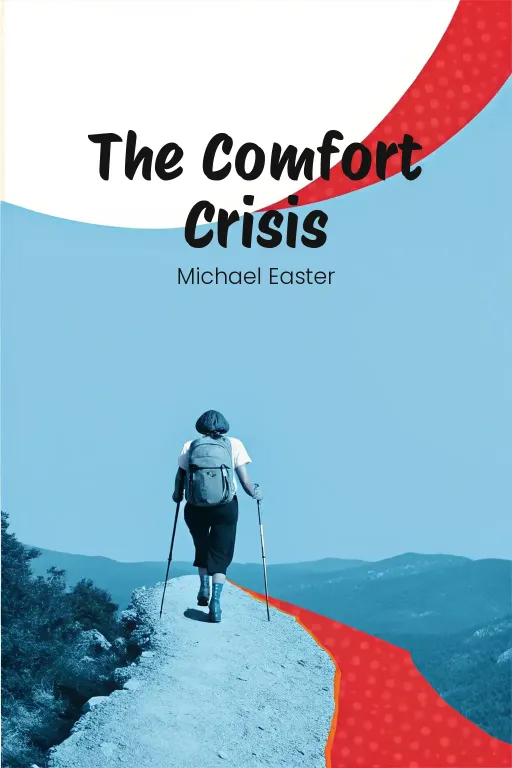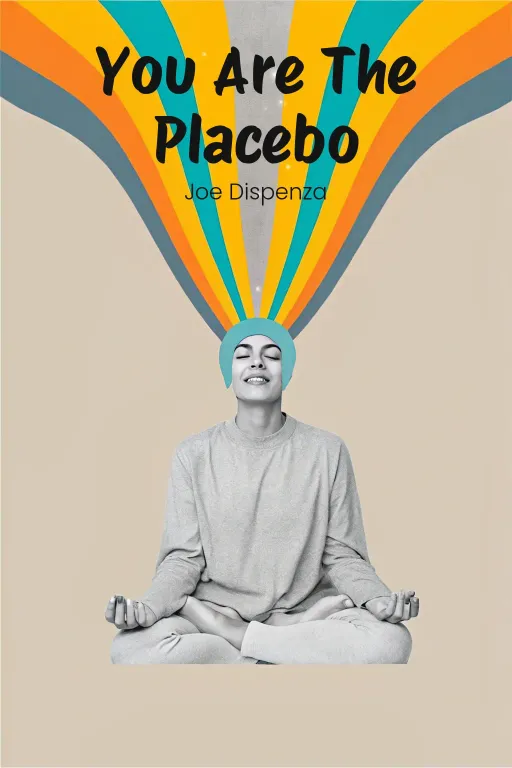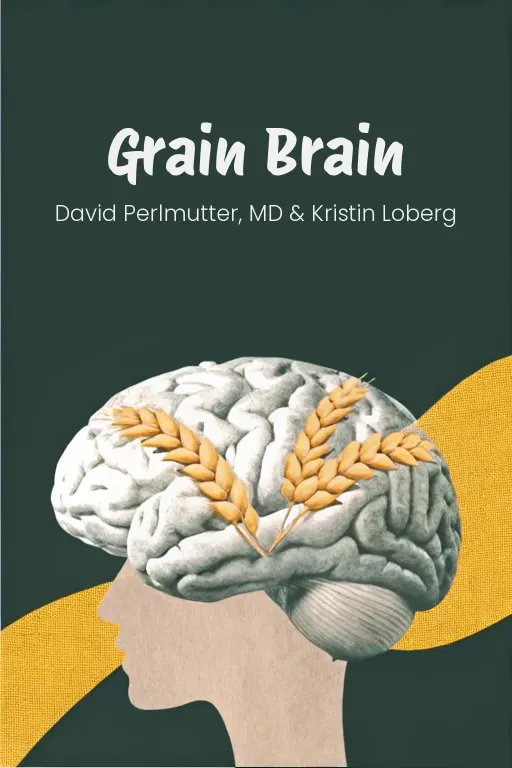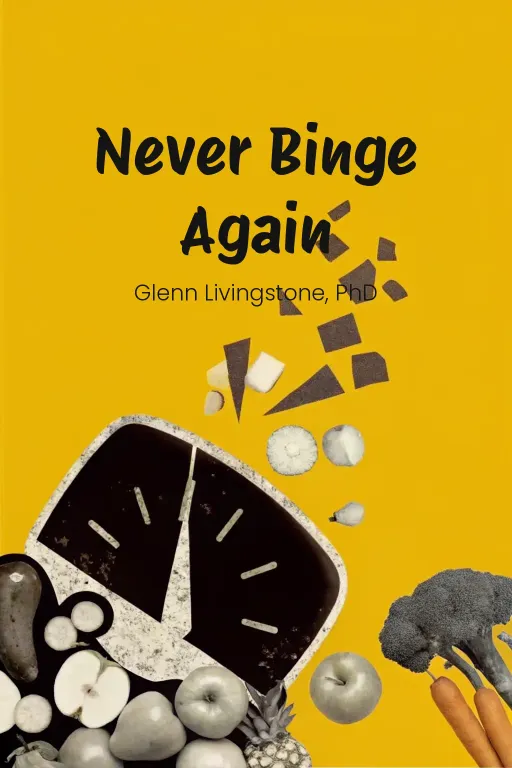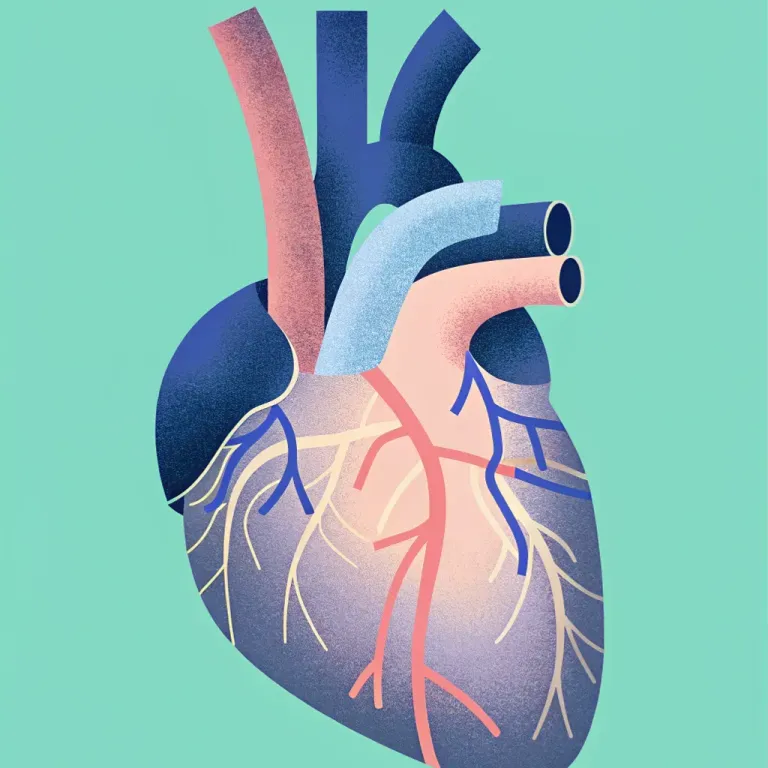
Thrive: Women's Health, Simplified
Podcast by Beta You with Alex and Michelle
The Law of Hunger, the Science of Strength, and Other Ways to Love Your Amazing Body
Thrive: Women's Health, Simplified
Part 1
Alex: Hey everyone, welcome back! Today, we're tackling a topic that directly involves half the world and indirectly influences the other half: women's health. Honestly, it’s a conversation long overdue. It's about empowering women not just to get by, but to really flourish. Michelle: Okay, Alex, I gotta ask... When you say "tools to thrive," is this gonna be another one of those books? You know, the ones with kale recipes, yoga poses, and permission to eat dessert? Because, honestly, I think I've seen them all. Alex: Oh, not at all, Michelle. The book we’re discussing, Collage of Women, it's a fresh take. Forget the trends and the pressure to be perfect. This is about understanding how nutrition, fitness, and mental well-being are all connected to support overall health. It's based on solid science, but also includes personal stories that make it super relatable, you know? Michelle: Alright, so we're talking food, fitness, and the mind. You're not gonna throw in a few "love yourself" mantras for good measure, are you? Alex: Well, yes, self-love is part of the picture, but it's not one of those airy-fairy "just believe in yourself" type guides. It’s about actual, doable steps that help you treat your body — and your mind — like the powerhouse it is. It’s like giving yourself permission to be imperfect while at the same time aiming for growth. Michelle: Okay, you’ve got my attention. What’s on today’s menu? Alex: I'm glad you asked! We're digging into three main themes from the book. First, we'll be looking at the key principles of holistic health – how nutrition, movement, and mental resilience work together, you know, in harmony. Michelle: Sounds ambitious. What's next? Alex: Next, we're diving into practical advice – how to use those principles in the real world. From meal prep to mindset shifts, the book offers a step-by-step approach for creating lasting habits. Michelle: And the last stop on our journey? Alex: We'll be looking at the transformative power of self-awareness and growth. It’s about moving from struggling beneath society's expectations to “really” thriving through self-love and acceptance. Michelle: So, basically, this is health advice that might actually make sense. I’m in.
Holistic Health Foundations
Part 2
Alex: Great! So, let's jump into the basics of holistic health, according to “Collage of Women”. The main idea is: nutrition, exercise, and mental well-being aren't separate things. They're all linked together; and each one boosts the others. It's like a cycle. Michelle: Okay, so a three-legged stool, right? If one leg's weak, the whole thing falls over. The book really emphasizes, "you are what you eat", right? Alex: Exactly, Michelle. Nutrition is key, and the book goes beyond just listing "superfoods" or giving out plans. It highlights understanding food as fuel—not just for your body, but for clear thinking and feeling good, too. For example, the breakdown of macronutrients—carbs, proteins, and fats—is explained so well, it really clears up a lot of confusion. Carbs aren't the devil; they are actually the main energy source. Michelle: Wait, carbs aren’t the enemy? I guess that means my Sunday pancakes are a power breakfast. Seriously, though, you’re saying it’s more about balance than cutting things out? Because these diet trends always need a villain, right? Alex: Exactly! It's really well-explained in this book. Like, it points out that proteins aren't just for building muscles. They also keep you full for longer, which stops you from snacking all the time. And healthy fats, like omega-3s, are great for your brain and heart. Carbs are good too, if they're the right kind—like grains, fruits, veggies and so on. A lot of people think "low-carb" is healthy, but we actually need them to function properly. Michelle: Okay, that sounds good, but how does this turn into real action? I mean, for someone who is balancing a full-time job, two kids, and a Netflix queue? Alex: The book makes it simple with real-life examples, like Sarah, who was constantly tired and living on snacks from vending machines. After learning the basics of nutrition, she made small changes. Instead of chips, she started having a handful of nuts or an apple. And within weeks, she felt much more energetic and focused. Michelle: So, it's not about spending hours meal-prepping every Sunday or drinking only green smoothies? Alex: No, it's just about making easy swaps that match what your body needs. The idea is that what you eat is an act of self-respect, not a punishment. And over time, those small changes can make a big difference. Oh, and it also debunks myths that don't go away, like the whole fat makes you fat idea. The book really encourages learning about nutrition, instead of following the latest trends. Michelle: So, fats—like avocados, olive oil, that kind of thing? Alex: Exactly, and also omega-3s from fish or flaxseeds. The book talks about brain health, hormone balance, and how you can prevent yourself from burning out. And they debunk the idea that "fat makes you fat," which has been harmful. Michelle: Alright, I'm starting to get it. Let's talk about exercise. Are they gonna tell us to run marathons or do Zumba all the time? Alex: Not at all, Michelle. Exercise in this book isn't about how you look or crazy routines. It's about how your body works and feeling good when you move. Regular exercise, whatever it is, isn't just about burning calories. It makes you feel better, makes you stronger, and can prevent long-term problems like weak bones. Michelle: Okay, but how do they deal with the elephant in the room? You know, the fear that strength training turns women into bodybuilders? Alex: They address that idea directly, and it's great. Women don't naturally have enough testosterone to get huge muscles, like men do. Instead, lifting weights helps build lean muscle, which helps fight muscle loss as we get older. Michelle: So, it's more about “grab some dumbbells” and less about “looking like The Rock”? Alex: Exactly! They talk about Jessica, who didn't want to lift weights because she thought she would lose her femininity. But once she started, she not only saw physical changes, like better posture and stronger muscles, but she also felt stronger in her daily life. Hiking trails that used to be hard, carrying heavy things easily—things like that became doable. Michelle: I like the idea of feeling strong and being able to live your life more easily. But is the book all practical, or does it also mention the emotional side of exercise? Alex: Definitely. It encourages you to see exercise as something fun and personal. One of my favorite ideas is when they tell women to find their “movement identity” instead of forcing themselves to do things they don't like. Whether it's hiking, dancing, swimming—it's about finding something that feels good and that you'll keep doing. Michelle: Alright, you got me on food and exercise. What about the mind? Because, honestly, mindfulness sounds a little... soft to me. Alex: That’s where this book stands out. It doesn’t preach. Instead, it explains how mental awareness underpins everything—nutrition, fitness, overall health. And it gives practical, achievable steps toward emotional resilience: mindfulness, reframing negative self-talk, and self-awareness exercises. Michelle: You’re saying it’s not just sitting cross-legged for an hour a day chanting “om”? Alex: Not at all. Remember Maria from the book? She was overwhelmed by work, raising kids, and the emotional eating cycle that came with her stress. The book taught her to start small—just five-minute meditations in the morning and journaling her feelings. Those moments helped her reconnect with herself. Mindfulness isn’t about perfection; it’s about progress. Michelle: So instead of “fix yourself instantly,” it’s “take it one tiny step at a time.” I like that. Any surprising points about mindfulness? Alex: Actually, yes! One counterintuitive takeaway is how the book acknowledges resistance to mindfulness as normal. Instead of demanding perfection, it suggests ways to fit tiny moments of mindfulness into busy days—like taking a calming breath in traffic. Michelle: I can get behind that—low pressure, small wins. And tying it back to the idea of connectedness, I’m assuming this feeds into the health cycle as well? Alex: Exactly. Proper nutrition enhances your ability to manage stress, fitness boosts your mood, and mindfulness keeps your aspirations grounded in self-care rather than self-criticism. It’s all about creating a loop where each piece supports the other.
Practical Applications for Daily Life
Part 3
Alex: So, this foundational stuff naturally leads to how you actually use it in real life, and that's where “Collage of Women” really shines. It’s not just about knowing things, it's about doing them. The book gives readers steps they can actually take, little by little, starting with nutrition, fitness, and mindfulness—the big three. Michelle: Okay, let me guess. This is where the rubber meets the road, right? The “what can you actually do” part to make those healthy-living ideas work when, you know, you're juggling a million things. Sounds…challenging, to say the least. Alex: It might seem that way, but the beauty of the book is that it breaks down those goals into small, manageable habits. Take mindful eating, for instance. The book goes into how to really listen to your body’s signals, like when you’re actually hungry or full. It’s less about strict rules and more about paying attention. Michelle: Alright, help me out. When you say “listen to hunger signals,” are we just talking about my stomach rumbling? Because I’m pretty sure I’ve nailed that part. Alex: It's more than that, Michelle. Mindful eating is about pausing when you feel like eating and asking, 'Am I really hungry, or is there something else going on?' A lot of times, we mistake thirst or stress for hunger. The book suggests having a glass of water first to see if that does the trick. Michelle: So, instead of stress-eating chips, I’m supposed to have a conversation with my stomach? What if all I want is comfort food after a tough day? Alex: And that's okay! The book doesn’t demonize comfort food. It's just about being aware of your choices. There’s a character, Maria, who had a really stressful job and would snack constantly out of frustration. By pausing, keeping a simple food journal, and swapping chips, for example, for nuts or fruit, she started to get her eating habits back on track, without some crazy diet. Michelle: Food journaling, huh? I can see how that helps you connect the dots between what you eat and why. But what about cravings? I mean, when those late-night chocolate cravings hit, a glass of water isn’t going to cut it. Alex: Cravings are tricky! The book says they are often signals, not commands. Instead of feeling like you have to give in, you can ask yourself what you really need. Maybe you're tired, maybe you're missing some nutrients, or maybe you just need to de-stress. Michelle: Interesting. Like, reinterpreting the “check engine” light instead of just driving to the nearest bakery. I get it. Speaking of interpretation, what about exercise? Making that stick sounds even harder. Alex: The book's approach is really smart. It's about finding the joy in moving your body. It says fitness doesn’t have to be about punishing workouts. It needs to be personalized. You experiment with what works for you, whether that's brisk walks, yoga, kickboxing, or playing soccer with your kids. Michelle: So, it’s basically giving you permission to ditch the gym if you hate it? Alex: Exactly! It’s about seeing exercise as fun instead of a chore. The book tells a story about a woman named Jessica, who hated gym machines. She discovered dance classes with friends and yoga, and that kept her motivated because it was enjoyable, not a drag. Michelle: I like that. It challenges the idea that exercise has to be something you dread. But, what about results? If you’re just out there having fun, how do you know you’re actually getting anywhere? Alex: Well, the book focuses on how exercise helps you in your daily life, not just how you look. Jessica didn’t just get stronger and more flexible from dancing and yoga; she also felt more confident and capable in her body. Hiking trails that were too difficult before became doable, and she could carry groceries without getting exhausted. So, it’s fitness for life, not just for Instagram, you know? Michelle: Now, that’s a message I can get behind. And I bet this ties back to the emotional side of things, right? Like, movement is also good for your mental health. Alex: Exactly. And that brings us to the third pillar: stress management. Mindfulness is key here since it connects feeling positive with our ability to bounce back from tough situations. Michelle: Mindfulness—so, are we back to the "ohm" jokes? Or does the book actually make this feel…doable? Alex: “Doable” is the whole point. “Collage of Women” doesn't expect you to do hour-long meditations. It makes it accessible. Maria's story is good here. She started doing 5-minute breathing exercises during her crazy day by setting reminders on her phone. Just inhale deeply, hold it, exhale slowly—simple stuff, but it helped her stay focused and grounded. Michelle: Five minutes, huh? That’s shorter than some commercials. And even those tiny moments can help with stress? Alex: Absolutely. The book makes it clear that you don't need an hour to benefit from mindfulness. Even short practices, like taking a few deep breaths in traffic, can help you manage stress in the moment. Michelle: I appreciate that. I mean, no one is going to argue that stress isn't an issue, but finding actual ways to deal with it without losing it? That's rare. Alex: And that’s really what it’s all about: real, tangible benefits. Good nutrition fuels your body, joyful movement makes it stronger, and mindfulness keeps you steady when life gets chaotic. When you weave those three things together, you create long-lasting healthy habits—and that's where the magic happens. Michelle: Well, I think I might have to mull over those health tips. So, uh, what's next?
Personal Growth and Empowerment
Part 4
Alex: So, with all these tools we've talked about, we can really start focusing on personal growth and empowerment. This is where everything comes together in the book, Michelle. It’s the payoff for building those healthy habits we discussed, and it expands out to look at how we develop throughout our lives, how we embrace aging, celebrate our bodies, and build resilience. It's about thriving, “really” thriving, at every stage of life, and not in spite of difficulties, but often because of them. Michelle: That sounds like a huge undertaking, Alex. Are we diving into philosophy now? Aging gracefully, resilience, all those really deep concepts? It feels like the kind of stuff that either completely inspires people or leaves them feeling totally lost. Where do we even begin? Alex: It starts by rethinking what aging “really” means, which is actually one of the most universal, yet misunderstood, things we all experience. What the book really does is reframe aging, turning it away from this dreaded decline into something we can celebrate. It's proof of all the experiences you’ve had, the wisdom you've picked up, and the strength you've developed. It's all about taking back the narrative. Michelle: Right, but when every other ad is for anti-aging creams or Botox, it feels a bit like fighting a losing battle to say we should "celebrate wrinkles." How does the book deal with our culture's obsession with staying young? Alex: Well, the book does what it does so well, it gets personal. There’s a beautiful story about a woman remembering her grandmother. The grandmother had these wrinkled hands, and she used them to care for her family and work in her garden. Those hands, weathered with love and work, became symbols of her strength and resilience. And for the granddaughter, seeing that changed how she thought about her own body. She started seeing those lines and changes not as something to hide, but as powerful reminders of a life well-lived. Michelle: That’s a really powerful image—seeing wrinkled hands as a badge of honor, that's good. A very human approach. I imagine it's not always easy to keep that in mind when society’s telling you something else. Do they acknowledge how tough it is to hold onto that perspective when you're constantly bombarded with messages telling you to “stay young"? Alex: Absolutely, Michelle. The book doesn't gloss over the pressures from society, it just presents an alternative. Instead of fighting aging, it focuses on how you can care for yourself to thrive within the reality of aging. It’s about keeping mobile and strong through exercise, eating well to support your skin and muscles, and taking care of your emotional health. The book says this approach isn’t about ignoring wrinkles, but thinking, "What can I do to feel my best, no matter my age?" Michelle: So instead of clinging to the illusion of eternal youth, it's about, say, reaching the halfway point in a marathon and finally learning how to pace yourself. Makes sense. Okay, so moving on from aging, what's next on the empowerment agenda? Alex: It's about celebrating the body - not for how it looks, but for what it does! The book really hones in on body acceptance and how it’s linked to your self-worth. Women have been taught that confidence comes from appearance, but this shifts the focus to the practical – what your body can do, how it sustains you, and adapts to challenges. Michelle: So, flipping the script, huh? Yeah, I like that. I'm sure stereotypes and expectations play a big role in making this shift harder for some people. I'm guessing there's another story to illustrate this? Alex: There is! Jessica's story is perfect. She initially avoided strength training because she didn’t want to look "too muscular," which, as we know, is a really common fear. But when she finally tried it, she found both physical and emotional strength. She could carry heavier things, hike tougher trails, and move with a confidence she never knew she had. And that change didn't just affect her body – it changed how she saw herself in all areas of her life. Michelle: So it wasn’t just about bench-pressing her anxieties into submission, but about realizing, "Hey, I'm stronger than I thought—literally and figuratively." Okay, that’s not your average glow-up story, Alex. Alex: Right. Jessica’s story really shows that when women stop thinking about their bodies in terms of external judgment and start appreciating what their bodies can do, it's incredibly empowering. It's like shifting from what you can’t do to everything your body empowers you to do. That shift in perspective truly transforms things. Michelle: Okay, I'm inspired. Let's talk about resilience for a minute though, because the term gets thrown around so much. Everyone wants it, but what does it really mean? And does the book offer anything beyond the usual, you know, "bounce back from adversity" type advice? Alex: It definitely does. The book presents resilience not as something you either have or don’t, but as a skill you can strengthen. It looks at things like reframing setbacks as opportunities for growth, using affirmations to combat self-doubt, or practicing mindfulness to calm your mind in difficult situations. There’s this great story about Maria, a single mom who was overwhelmed with guilt and stress. She started with small things, like saying positive affirmations every morning: “I am capable. I am strong. I am enough.” At first, it felt silly, but over time, those words changed her mindset. She started forgiving herself for bad days and facing challenges with more confidence. Michelle: Positive affirmations, huh? I mean, there's some solid science behind that. But realistically, most people roll their eyes before they even try. How does the book ensure it feels practical and not just like, I don’t know, cheering yourself on in the mirror? Alex: That's a pretty good point. What makes it different is how it emphasizes persistence and personalization. Maria didn’t just wake up one day believing in herself. The book “really” highlights that affirmations work best when they’re tied to specific, personal challenges – replacing “I’m a failure” with “I’m learning to do my best,” for example. It's about creating a conversation that's compassionate and realistic, not just blindly repeating positive sayings. Michelle: I can respect that—it's more about rewiring your brain than forcing optimism down your throat. So, with aging gracefully, celebrating the body, and building resilience, where’s the common thread? What does all this lead to? Alex: The common thread is empowerment. Each of these things contributes to living authentically and fully. When you let go of perfection, embrace who you are at every stage of life, and “really” invest in your physical and emotional well-being, you create a life that’s rooted in confidence and joy. It's not about meeting some external expectation – it’s about finally putting yourself first.
Conclusion
Part 5
Alex: Okay, so to bring it all together, today we “really” dug into Collage of Women, right? We started with the core idea of how food, fitness, and mindfulness are totally connected and fundamental to our health. Then, we got practical, breaking it down into mindful eating, finding movement you actually enjoy, and some solid stress management techniques. Finally, we zoomed out to see the big picture – how all these things work together to build resilience, empower us, and help women “really” thrive, no matter what stage of life they’re in. Michelle: Yeah, and what “really” hit home for me is that this isn't about achieving some perfect ideal. It's not about following this super strict regimen or chasing after external validation, right? It’s about truly understanding your body, meeting yourself where you're at, and making those small, meaningful changes that you can actually stick with. Alex: Precisely! The big takeaway here is that health isn’t some final destination you arrive at. It’s more of an ongoing practice, rooted in being self-aware, adaptable, and kind to yourself. So for everyone listening, maybe ask yourself: What's one positive shift—a new habit, maybe a change in perspective, or just a small action—that you could try today that would help you feel a little better tomorrow? Michelle: Great question, Alex. And while you're pondering that, maybe also consider how you can start appreciating what your body does for you, instead of constantly judging its appearance. Because if there’s one major takeaway from this book, it’s that self-care is a form of empowerment – one choice, one moment at a time.

